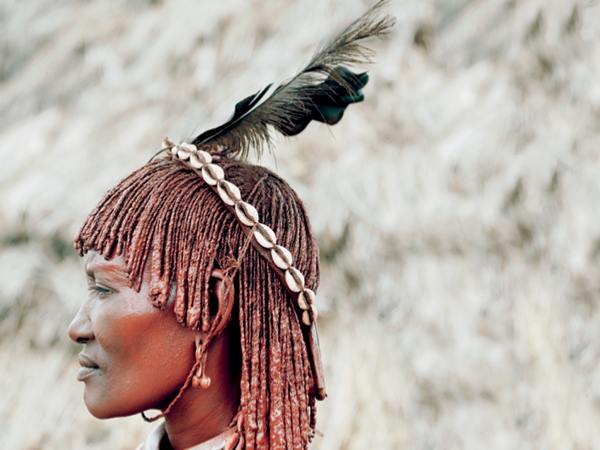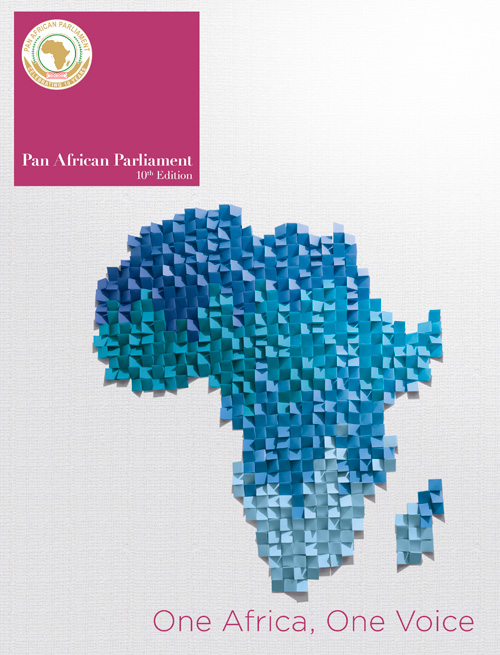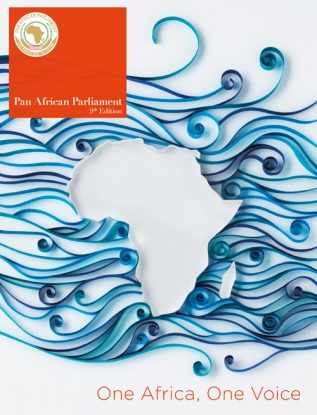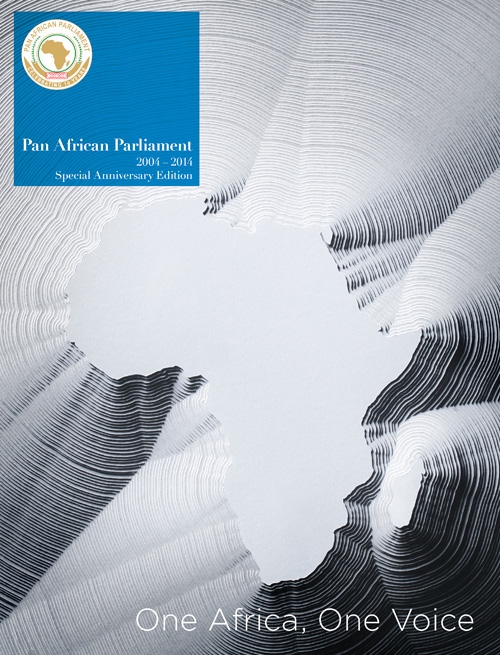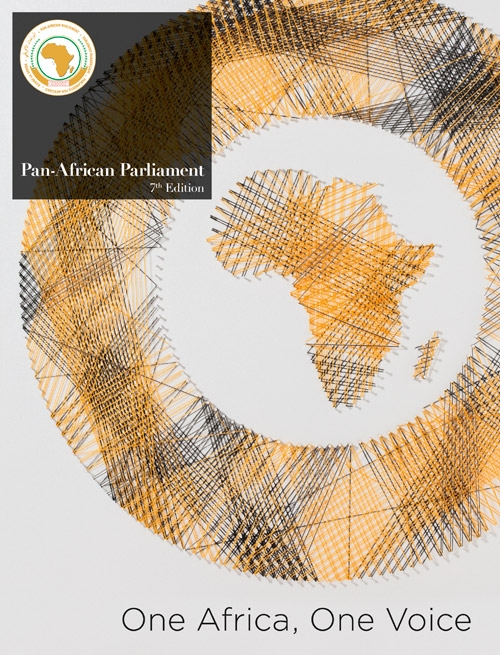
The two-day 2013 Women’s Conference gave female Parliamentarians the opportunity to get a comprehensive and in-depth understanding of the scope of gender-based violence across the continent, and the implications that this has for women’s health and development.
While Africa has made good headway on many of the Millennium Development Goals (MDGs) milestones, little progress has been made in terms of the MDGs related to the welfare of women, according to the regional director of the United Nations Population Fund for East and Southern Africa, Dr Julitta Onabanjo.
The conference offered the former President of the PAP, Hon Gertrude Mongella, the opportunity to remind participants that the aim of organising women conferences was that women want a world free of violence. Like their male counterparts, women wanted to live in peace. Hon Mongella reiterated the fact that there was need for joint effort in the fight to end violence against women and girls in Africa, and to devise strategies that empower the female community on the continent. She argued that if a woman is empowered – economically, socially, legally and academically – she could not be subjected to male oppression, let alone violence.
Throughout the conference, presenters stressed that violence against women and girls constituted a violation of their human rights, fundamental freedoms and human development, and thus negatively impacted on overall social and economic development.
Violence can be physical or psychological; in the form of intimidation; politically motivated; sexual in nature; or occur during conflict. Socialised violence was discussed: domestic; trafficking; forced marriage of underage girls and female genital mutilation/cutting (FGM/C).
If a woman is empowered economically, socially, legally and academically, she cannot be a subject of male oppression
The conference participants emphasised that it was each state’s obligation to take action to prevent these human rights abuses and that they had to investigate acts of violence and punish perpetrators. Governments were urged to ratify international and regional instruments pertaining to violence against women and girls, develop national action plans to raise awareness of the health impacts of this type of violence, and organise official countrywide activities to promote public awareness of these gender crimes – including observing the International Day for the Elimination of Violence Against Women on 25 November each year.
Domestic violence
Africa is one of the world’s regions most affected by discrimination and violence against women. Thokozile Ruzvidzo, the co-ordinator of Gender and Social Development at the United Economic Commission for Africa, told the conference that intimate partner violence (IPV) in the sub-Saharan and North Africa/Middle East regions was 37%, higher than the global average of 30%.
While the psychological and emotional impacts of IPV and violence against women (and the impact on their children) could not be measured, what could was the direct economic costs of it.
There are the health-sector costs and the expenditures of police, judicial and social service sectors in responding to victims. Then there are the out-of-pocket expenses paid by victims. Indirect costs include time lost to labour and household services. In certain African countries where women perform up to 70% of agricultural activity, the lost labour has a substantial impact on the economy and food security.
Another conference presenter, Rotimi Sankore from Africa Health, Human and Social Development (AfriDev) shared figures on the socialisation and indoctrination of women to accept violence against women. In 34 of 37 countries that provided data to AfriDev, between 30% and 87% of women aged 15 to 49 justified husbands beating their wives for reasons such as burning the food, arguing with him or neglecting the children.
In the conference’s recommendations, they called upon governments and Parliaments to:
- Develop and implement specific legislation to swiftly handle criminal matters relating to all forms of domestic violence – including marital rape and sexual abuse.
- Focus on national plans to combat domestic violence, including research, prevention, education, information dissemination and criminalisation; and also social, financial and psychological support for victims.
- Encourage adequate reporting of domestic violence and to combat recidivism.
Female genital mutilation/cutting
In December 2005, the African Parliamentary Conference in Dakar called on National Parliaments to abandon the practice of FGM/C. However, certain states have yet to enact this legislation. The 2013 Women’s Conference called on all Parliaments to work with traditional chiefs and religious leaders, women’s and youth movements as well as governments to work towards eradicating FGM/C. It also urged Parliaments to monitor and hold accountable government departments to implement provisions to protect girls from FGM/C.
Sexual violence
Participants agreed that a crucial breakthrough would be to end the silence on sexual violence against women and girls. To do this, they needed the support of all Parliaments. They recommended that:
- All countries make rape, sexual slavery, enforced prostitution, forced pregnancy, mandatory sterilisation and all other forms of sexual violence of this nature criminal under their domestic legislation.
- Parliaments should examine the penalties of these crimes to ensure they are adequate.
- All relevant Parliamentary bodies who debated the measures of punishment for perpetrators and who considered the methods for gathering evidence, should pay special attention to women and girls who might find it difficult to testify in count – in particular children and the mentally disabled.
- Further to the above, it was suggested that the media coverage of sexual violence be examined to minimise additional trauma to victims.
Forced or early marriage
Dr Marleen Temmerman, WHO director of Reproductive Health and Research, took participants through a report on the status of legislation relating to child marriage in Africa. She said that on the continent, the average prevalence of early marriages was 37% but it varied substantially between countries.
In Algeria it was a low 1.8%, while in Niger it was 74.5%. In 14 African countries, more than 40% of women aged 20 to 24 were married before they reached the age of 18, and in six of the countries, the rates were above 50%.
Temmerman listed many factors that encouraged early marriages, such as gender inequality, poverty and insecurity, and that for some families, girl children were seen as economic burdens for which marriage was a solution. Parents often forced young girls into marriage to preserve their premarital virginity and – especially in times of conflict – protect them against inappropriate sexual behaviour before marriage.
The conference appealed to all governments and Parliaments to support the eradication of violence against women and girls
For young girls, early marriages have the potential to cause great harm, including poorer health, lower levels of education, higher risk of violence and abuse, and poverty. The main causes of death amongst girls ages 15 to 19 in developing countries was complications of pregnancy and childbirth.
Based on Temmerman’s presentation, the conference recommendations included:
- Urging Parliamentarians to advocate the mandatory registration of marriages and births as a mechanism for identifying and recording enforced marriage of underage girls.
- Continued support for the 2012 Pan African Campaign against Forced Marriage of Underage Children, which states that this practice is a serious form of violence against women and girls and must be ended.
- Enforcing legislation to establish the minimum age of marriage to be 18, as defined by the relevant African Charter.
- The development of institutional frameworks and mass campaigns to create awareness in communities to end forced marriages.
Legislation to implementation
One of the key focuses of the conference was to try to move the legislation that protected women and girls from violent acts to implementation. To do so, the conference recommended:
- That governments provide gender-justice training to all relevant agencies, particularly the police and armed forces.
- There be a joint conference of Ministers of Justice and Gender to reform legislation on gender equality and substantiate the steps for implementation and enforcement of legislation on violence against women and girls.
- Involving community and traditional leaders to promote gender equality education in communities.
- All governments should establish ways to monitor cases of violence against women and girls, and to compile the data (disaggregated by sex and age, and urban and rural communities) to evaluate the efficacy of local gender equality policies.
- Calling on the Women Caucus of the PAP to work with stakeholders to monitor and evaluate all international, regional and national measures, and that a rapporteur submits an annual report to the Assembly.
The conference appealed to all governments and Parliaments to support the eradication of violence against women and girls. To achieve this, the conference asked each government to:
- Enact and enforce legislation against perpetrators of violent acts against women and girls.
- Review current legislation to address practices and traditions that allow for gender inequality – in particular economic opportunities, inheritance, education, health and access to property.
- Promote educational campaigns for both public agents and the public that encourage change in negative social and cultural attitudes to gender inequality and violence.
- Create equality in educational institutions to promote girl-child education and positive gender role models.
- Allocate sufficient budget resources to facilitate access to reproductive, sexual, maternal and child health information and services.


